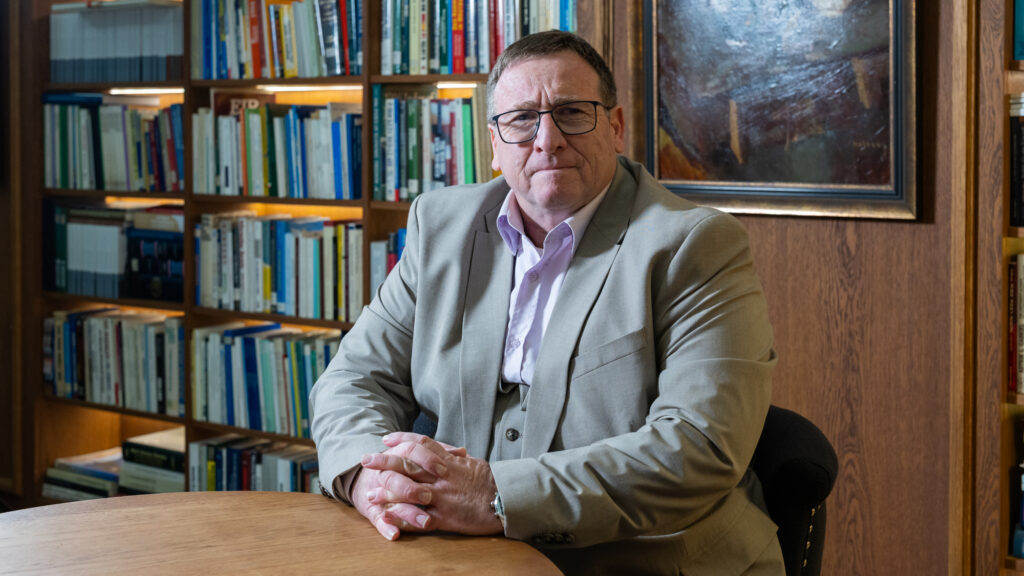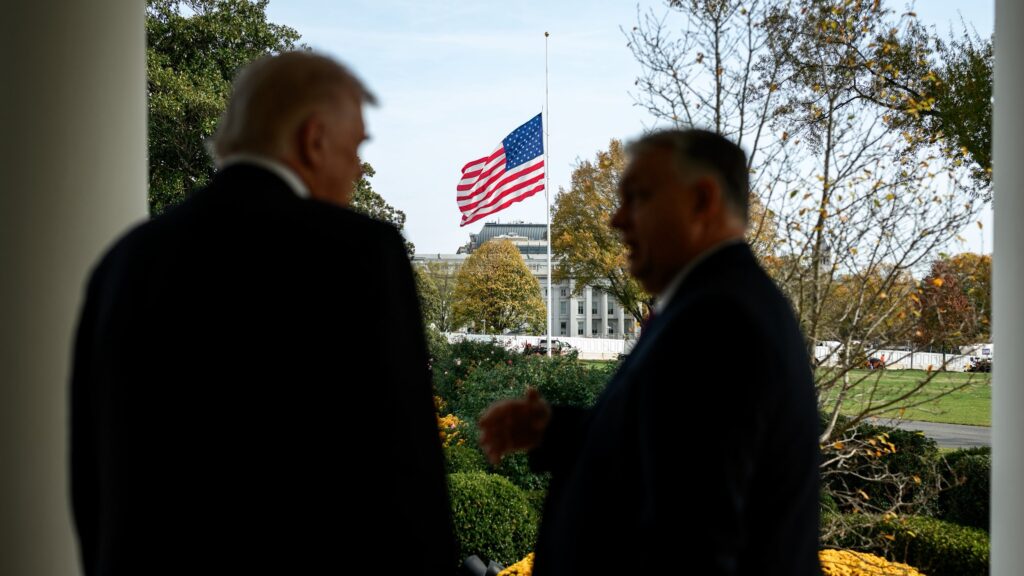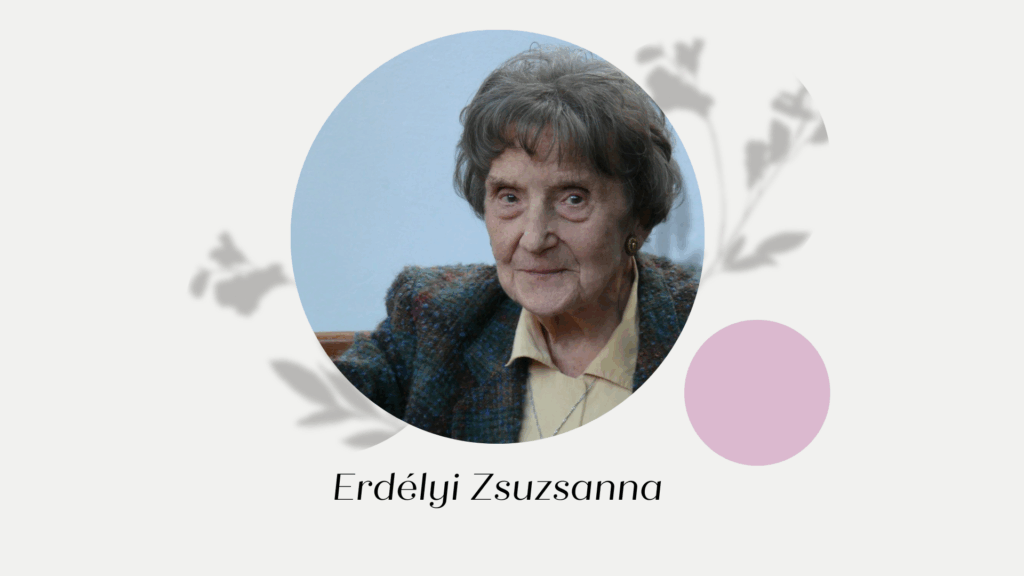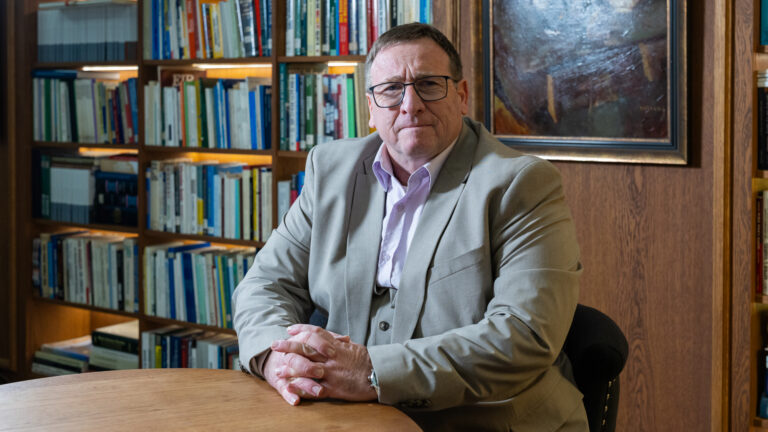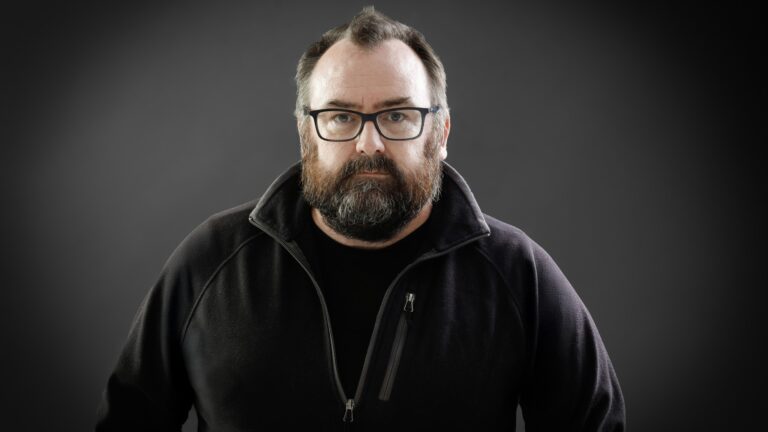Dr Chad Pecknold is a Professor of Theology at The Catholic University of America in Washington, DC. He also serves as the director for Americans United for Life. He was one of the distinguished speakers at MCC Feszt 2025 in Esztergom, Hungary, and was gracious enough to give an exclusive interview to our website at the event.
***
I’ve just been at your panel here at MCC Feszt 2025, where you discussed post-liberalism. You were pretty firm that you believe ‘liberalism has collapsed under its own weight,’ as you put it. Do you think we actually live in a post-liberal world right now?
I think unquestionably we live in a time, as the panel was called, beyond liberalism. Post-liberal, as I mentioned on the panel, is mostly a descriptive term for understanding that we no longer live by liberal principles. Liberal principles no longer guide the international order. Liberal principles don’t guide the global economy. We live in a multipolar world in which the global economy is being reshaped, in which questions of national sovereignty are being asked anew because the liberal international order has collapsed.
You wouldn’t have countries like America, you wouldn’t have countries like Hungary, you wouldn’t have the EU Patriots rising up if there wasn’t already a collapse of a system going on.
Would it be the same if Kamala Harris had won the election in the US last year, or would there be a reverting back to liberalism in the international order?
No, because I don’t actually think the Democrats are liberals either. They are operating on the most vicious aspects of liberalism, but they’re operating not on principles. I’ve often described the evolution of the Democratic Party as tragic because it was once a great party that had political principles. Now it is an anti-political party. It’s a party which is built on tearing up the country’s history. Democrats want to tear down all of our statues. They want to rename everything. They want to make men into women and women into men. They want to destroy the family. They really would prefer to fly the LGBT flag over the United States flag. And so all of those things put together, you say, well, they’re not operating on the old principles. They’re operating on brand principles.
‘I don’t actually think the Democrats are liberals either’
This is why I say post-liberalism is really more of a descriptive term, because you can have a bad post-liberal and a good post liberal. But the reality is that liberalism has already collapsed. Once you understand that, you can understand all the new movements. And you can understand why some things are working and some things aren’t working. You can also understand why, for example, when JD Vance spoke at the Munich Security Conference, his speech was so shocking. Why? All he was doing was asserting national sovereignty, right? Why should that be so shocking? Well, it’s shocking because in a sense, the new post-liberal order has emerged, and people’s mentality is still stuck on the terms of liberalism. Their mentality is stuck on a set of terms which are no longer operating in the world.
At the same panel, some of the panellists made the claim that liberalism has its roots in Christianity, and it used to be grounded in Christianity. Even Thomas Jefferson in the Declaration of Independence writes about unalienable rights endowed by our Creator. Is there a basis for individual rights within scripture, or is it something that’s projected onto it?
Well, certainly in Christianity and in classical thought—this isn’t just a biblical question, but also if you go back to ancient Athens, Aristotle and Plato, for that matter—rights always go with responsibilities. They go with duties. What liberalism does is detach those things. It turns rights into something like an expression of your individual autonomy. And so your rights get tied to something like preferences. That’s not Christian at all.
So, if one says, is the idea of individual rights a Christian or biblical idea? Well, certainly you can import liberal ideas into Christianity, that’s been done many times. But a classical and Christian understanding of rights properly understood is not liberal. It can’t be liberal because rights are not key to individual wills. Rights are key to aspects of your nature which compel you to certain duties. So I have rights as a parent because I have duties as a parent. I have children because I have the biological capacity to have children. I got married. And we had children, and then I had duties to our children. Now, the moment I have duties to my children, I have rights as a parent, as a father, that the state must recognize. That’s a Christian and classical view of rights.
This is why liberals trample the idea of parental rights over our children. We have cases in California where the courts are suing and separating children from their parents because their parents say no to sex changes for their children. That shows you the very destructiveness of the liberal rule of law.
That’s also a very communistic idea, that children don’t belong to the parents, they belong to the state.
Very communistic, very socialistic, which is liberal, you know. I think this is something that’s often missed: communism and socialism, they’re attempts to solve a problem within liberalism. And the problem within liberalism is this individualism, right? Socialism and communism try to solve that problem, but they just repeat all the same problems. And so communism and liberalism are not so far apart. The Hungarians understand that particularly well because you’ve lived it. You’ve seen that communists and liberals weren’t good for Hungary.
You teach political theology at The Catholic University of America. That’s not a self-evident term. Can you explain, expand on what that entails?

Yeah, political theology is a fraught term. It can mean various things, some people call it theological politics. But it’s thinking about the ways in which human beings are religious by nature. And the city is religious by nature too. This has always been the human understanding.
You go back to ancient cultures, every city had a god, a panoply of gods. Our greatest ancient philosophers recognized that the city had a religious nature, and the soul has a religious nature. And that relationship between the soul and the city is at bottom theological. There’s a theological connection between souls and cities, and what’s the connection? God, because God’s the author of the soul and God’s the author of the city. Political theology at its best is thinking about that question. What is the relationship between the soul, the city, and God? If you think about what’s good for the soul, what makes the soul happy, that’s a very similar question to what will make the nation happy. And what’s going to make the nation happy is some connection to goodness itself, which you can call God. Goodness itself is God, and so that, in a nutshell, is political theology: thinking about the soul, the city, and the cause of all the goodness that makes people happy.
Then where does the separation of church and state come in?
I think the long history of Western civilization has always recognized a distinction between church and state. But the idea of a separation is artificial. You can’t separate the church and the state any more than you can separate it in your own soul. You can’t separate your body and your soul. You can’t separate the church and the state because the city is going to be religious in some ways, going to have religious preferences, and they’re either going to be bad or they’re going to be good. They’re either going to be true or they’re going to be false.
So I think if you look back at our own American history, we had ideas of separation of church and state even at the moment in which we had states that had establishment clauses. Different states in the United States were religious. They were Baptist, or Maryland was Catholic, and Virginia was Episcopalian. So what those early separation and establishment clauses were really about is ensuring that the federal government didn’t interfere with each state’s religious identity. So, actually all of those early notions were not about keeping God out of it. They were about making sure that the federal government doesn’t overreach the way Brussels overreaches. Those early discussions of separation were not about actually separating church and state, but actually ensuring that states have the freedom to express their faith in the ways that they saw fit, because it was part of their heritage.

President Trump has implemented very strict border controls in the US. We here in Hungary also have a Southern border barrier. Some on the left are trying to appeal to Christian empathy on the issue of migration, in their opposition to stricter border control. Where do you stand on that?
There’s a kind of sentiment—and it’s a liberal sentiment, but that liberal sentiment can get dressed up as Christian. And the sentiment is this: every human being is created in the image of God—which is true. And because every person is created in God’s image, we owe every person total access to our country—which is false. So I think what happens with that sentiment is that it conflates those two things. It says that because someone is made in the image and likeness of God, every nation has to give them amnesty, has to allow them into their country. This is a typical liberal problem in which the individual is pitted against the goods of the state, or the goods of the state are said to be evil because they don’t give maximal autonomy and freedom to the individual.
That is the problem of liberalism. It cannot deal with the relationship between those things. As a Catholic, Catholic teaching is actually quite clear on this, that nations have a right to defend themselves. They have a right to secure borders. They don’t owe a debt to all people. They don’t even owe a debt to those seeking political asylum. Nations are encouraged to offer protection to those seeking political asylum, but there’s no moral duty. And that’s the question. Is there a moral duty to let everybody come over your border? And there is absolutely not. And it’s not an offence against charity to say so.
Related articles:


